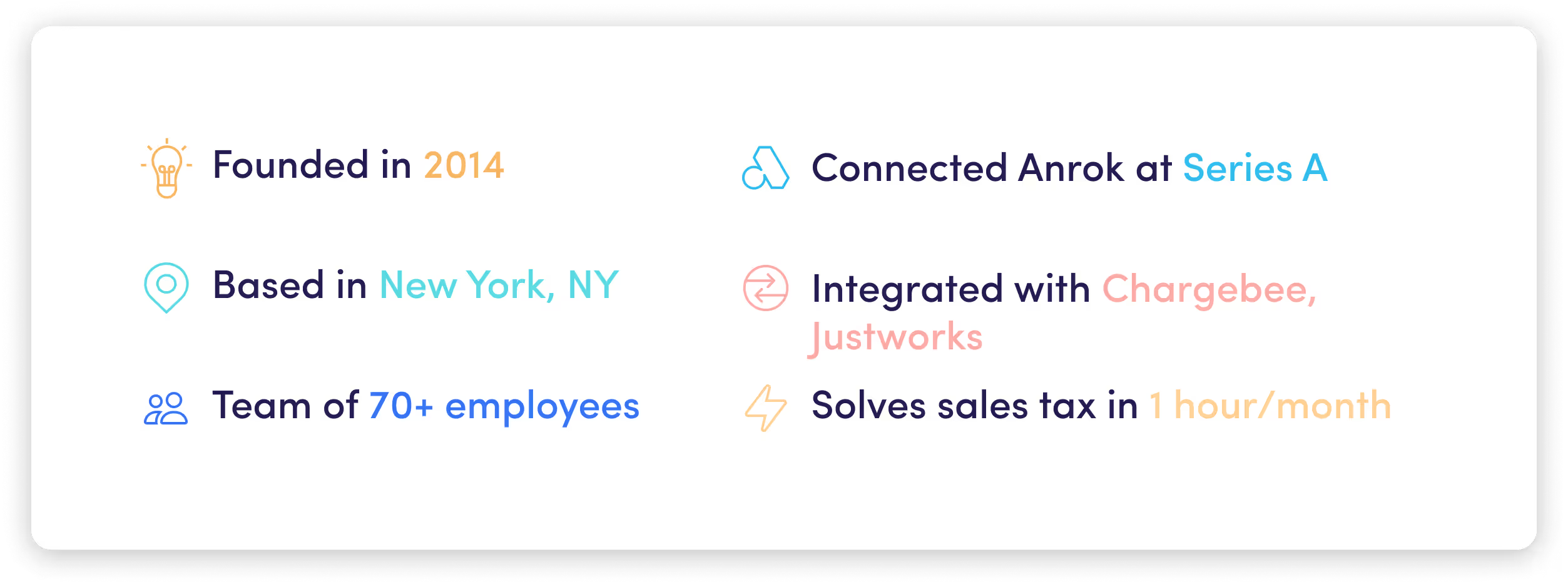
MaestroQA provides quality assurance software that helps customer service teams improve performance via conversation analysis and coaching tools. As a fast-growing B2B SaaS company serving enterprise clients, MaestroQA needed an automated sales tax solution that would work with their existing billing software and free their finance team from time-consuming, manual tasks.

Manual processes and consultant dependency hindered growth
As MaestroQA scaled through its Series A funding round, their finance team faced mounting challenges with their existing sales tax approach. The company had initially implemented a legacy platform after hitting nexus in New York, California, and Texas, but the solution created more problems than it solved.
Moiz Amjad, who handles finance and revenue operations at MaestroQA, found himself caught in a frustrating cycle of manual work and external dependencies. “The exposure process with consultants was completely manual,” Moiz explains. “I had to export sales data, wait for analysis, get guidance on where to register, then somehow connect state portals to the legacy platform. It was confusing, tedious, and the billable hours kept adding up.”
The situation became even more complex with home-rule jurisdictions like Chicago and Denver. City registration sites were confusing, and the process wasn’t always straightforward. “I found myself spending hours navigating portals and trying to interpret different state requirements,” says Moiz.
The manual approach also created compliance risks and customer friction. Because handling home-rule jurisdictions took longer than other locales, Moiz had to create a workaround by adding a separate 'tax product' to MaestroQA's catalog that wouldn't be counted as revenue. In some cases, this meant manually going back to customers and retroactively billing them for taxes that should have been collected upfront.
For a Series A company with a lean finance team, these delays created real risk exposure. The longer registrations took, the higher the chance of notices and fines. As Moiz puts it: “Researching rules and registrations was a massive time drain, and other priorities suffered because we were constantly being reactive.”







%20(1).webp)
